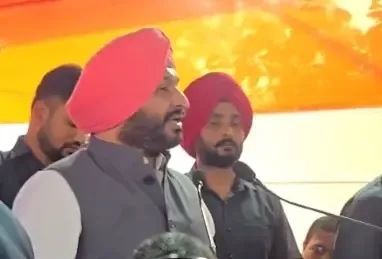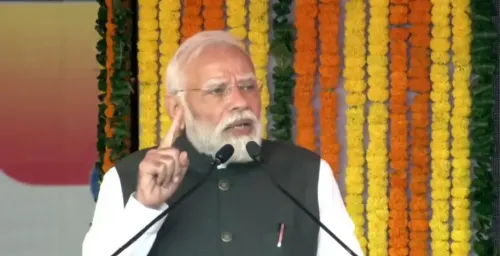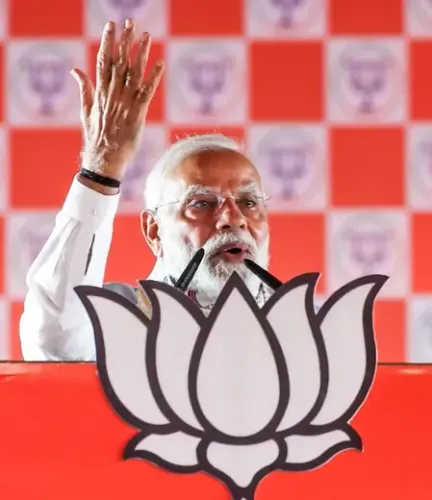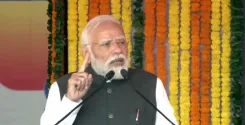Enhancing District Institutional Capacity is Key to Achieving $1 Trillion Economy: CM
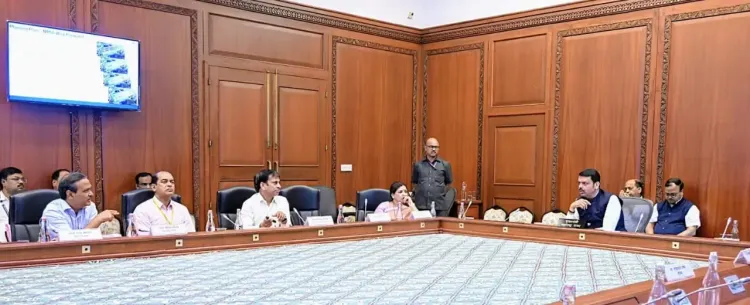
Synopsis
Key Takeaways
- Strengthening institutional capacity in districts is crucial for economic growth.
- Aiming for a 14.5% annual increase in GSDP.
- Exploring international capital and asset monetization is essential.
- Significant funding secured from World Bank and ADB.
- Focus on AI integration in government processes.
Mumbai, April 24 (NationPress) Chief Minister Devendra Fadnavis emphasized the necessity to bolster institutional capacity within districts via the State Data Policy to elevate the state's Gross Domestic Product (GSDP) by 14.5 percent annually, aiming for a trillion-dollar economy.
He made these remarks during the governing board meeting of the Maharashtra Institution for Transformation (MITRA), established in November 2022 as a think tank similar to NITI Aayog, to guide the state’s developmental strategies.
The Chief Minister’s directives come at a crucial time as the state government grapples with capital formation challenges, with Maharashtra’s budget allocating only 12 percent for such purposes.
Currently, the state’s gross capital formation within the GSDP stands at merely 23-24 percent, making it imperative to seek alternatives beyond raising taxes or cutting subsidies, including attracting international capital and monetizing idle public assets.
The state is securing $188 million from the World Bank to enhance district capabilities, alongside $500 million from the Asian Development Bank for tertiary healthcare improvements, $280 million mobilized through the SMART project, $500 million for flood water diversion to drought-prone regions, and $1 billion from AIB for providing 500,000 solar pumps to farmers.
Additionally, he instructed the advancement of small irrigation projects outside large dam catchment areas and the construction of new storage tanks with World Bank assistance for flood management in Kolhapur and Sangli districts.
The CEO of MITRA, Pravin Pardeshi, presented potential strategies for formulating policies essential for transforming the state's economy into a trillion-dollar entity. A review of the Maha STRIDE (Maharashtra Strengthening of Institutional Capabilities in Districts for Enabling Growth) project and the Maharashtra Responsive Development Project took place as well.
On this occasion, the Standard Operating Procedure (SOP) for the initial project report to be submitted to the Department of Economic Affairs, Ministry of Finance, Central Government was approved.
The Chief Minister instructed the timely presentation of projects implemented by the World Bank and external assistance as outlined in the SOP.
Moreover, to expedite government operations and enhance training for officers and employees, MITRA signed a Memorandum of Understanding with Universal AI University in the chief minister's presence.
A Memorandum of Understanding was also established between MITRA, the Indian Institute of Technology, Mumbai (IIT Mumbai), VoRGpedia, and other organizations to promote the integration of artificial intelligence in government functions.

